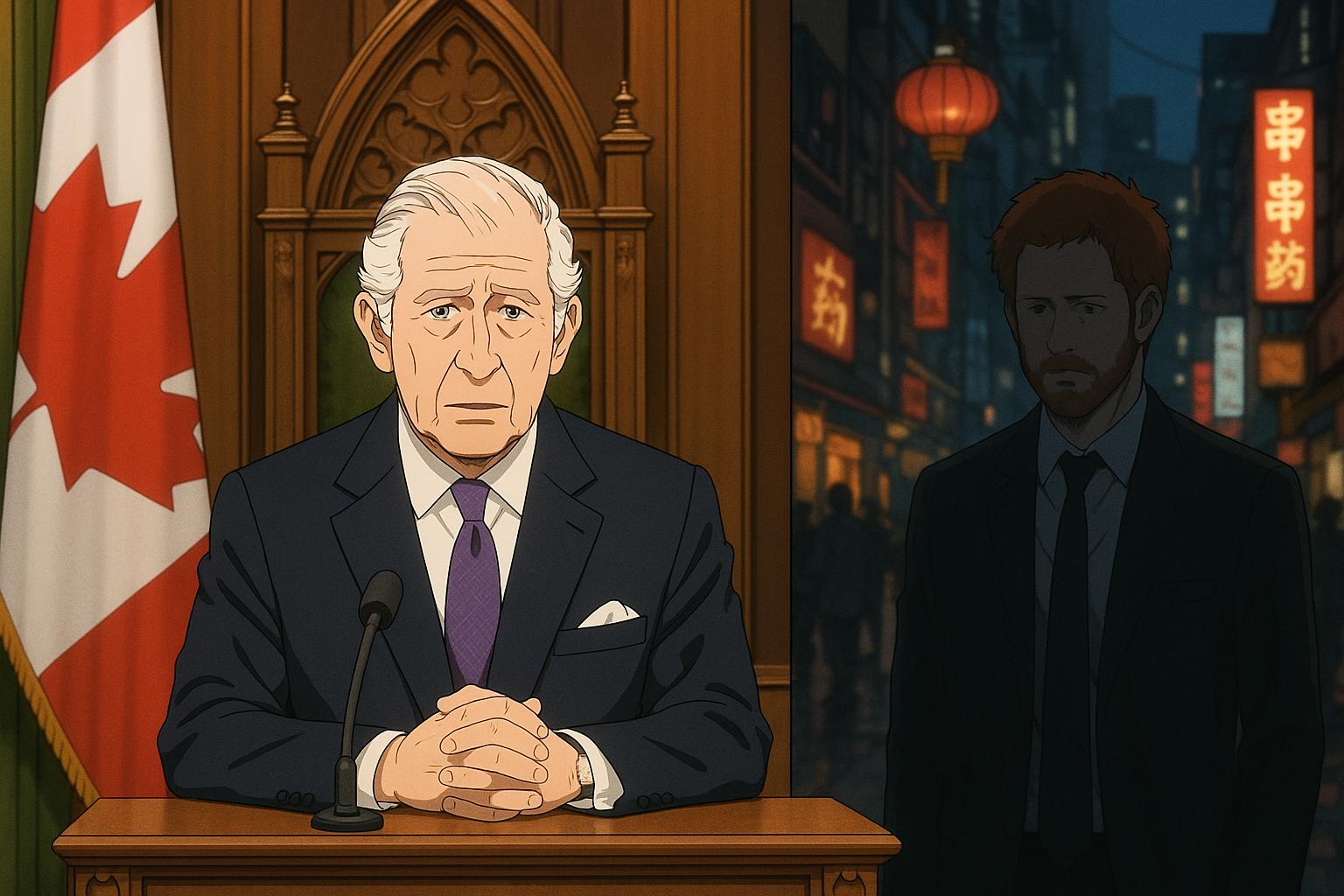As King Charles III embarked on a historic visit to Canada, marking the first time in 50 years that a reigning monarch has opened the Canadian Parliament, his son Prince Harry's unexpected appearance in China raised eyebrows. This juxtaposition of royal engagements has stirred controversy, with critics suggesting that Harry's choice to visit China was provocative, particularly given the significance of his father's trip.
The King's visit to Canada is not merely ceremonial; it embodies a reaffirmation of the symbolic ties between the UK and its former colonies, especially in light of increasing uncertainty within the realm of international relations. His address to the Canadian Parliament highlighted the values of self-determination and sovereignty, reinforcing Canada's independence amid recent politically charged comments from figures such as former US President Donald Trump, who once suggested that Canada could become the "51st state" of the USA. This visit was not only a chance for King Charles to deliver a ceremonial speech but also to underscore the monarchy's commitment to support Canada's identity as a sovereign nation.
While King Charles was delivering his “Speech from the Throne" – which outlined the new government's legislative priorities and emphasised themes of national unity and economic growth – Prince Harry was attending an event linked to his eco-travel organisation, Travalyst. Observers noted that Harry's presence in China could have been perceived as an attempt to eclipse his father's moment, particularly with the context of their strained relationship. Richard Eden, Editor of the Daily Mail’s diary, commented on a podcast that Harry's decision to fly to China during such a significant moment was indeed "sensitive" and potentially overshadowed the King's diplomatic endeavour.
The Duke of Sussex's choice to travel commercially rather than opt for a virtual meeting raised further questions among commentators. Jo Elvin, presenter of the podcast, suggested that Harry, as a prominent public figure, could have "read the room," questioning whether face-to-face interactions were truly necessary given the modern alternatives available. Richard Kay, Editor at Large of the Daily Mail, echoed this sentiment, asserting that “meet-and-greet” events could have been addressed through virtual means, especially with the gravity of the occasion in Canada.
The backdrop of these royal engagements highlights the shifting dynamics within the royal family and their increasing global visibility. As King Charles embarks on a path to reaffirm the monarchy’s relevance in modern Canada, Prince Harry's actions in China introduce a narrative of complexity and conflicting priorities within the family. The echoes of tradition and the challenging waters of contemporary public life suggest that the relationship between royal duties and personal ambitions continues to evolve in unpredictable ways.
Despite the familial tensions, the moment represents a significant chapter in both the Canadian political landscape and the royal family's own narrative, illustrating the balancing act between legacy and individual pursuits. As each member of the royal family seeks to find their place in the rapidly changing world, these developments will undoubtedly shape public perceptions and the future of the monarchy itself.
Reference Map:
Source: Noah Wire Services
